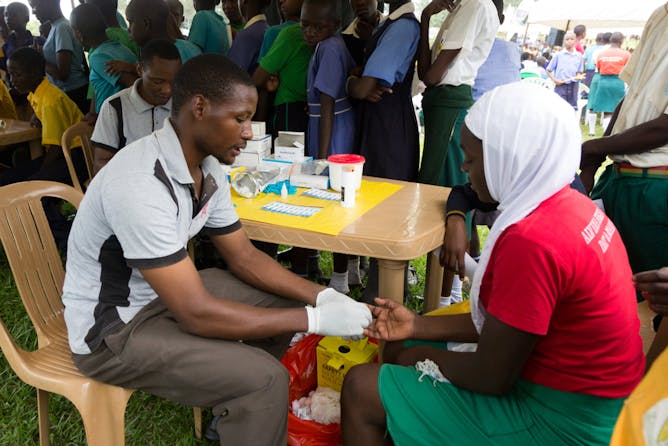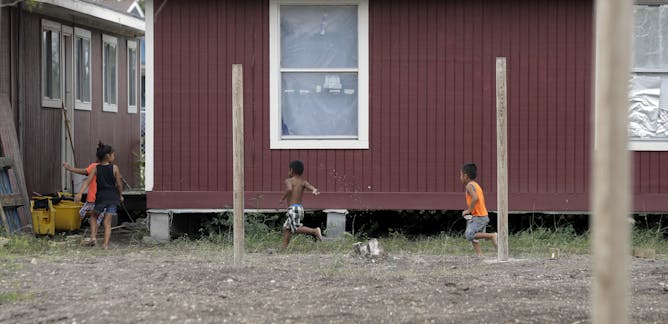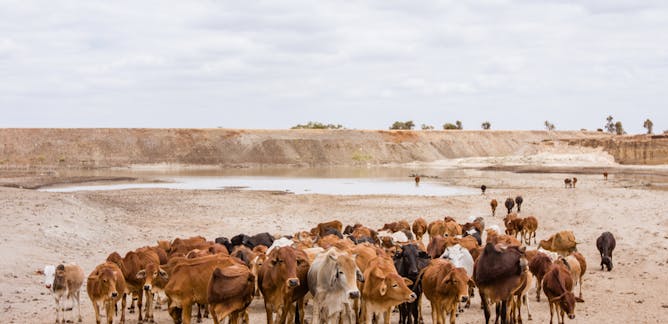|
The far right Jair Bolsonaro is favourite to be elected president of Brazil later this month. The leader of the Partido Social Liberal is best known internationally for a string of sexist, racist and homophobic comments, but he is also a climate change denier who has pledged to abolish the national environment ministry and roll back protections for indigenous people. If elected, he is set to team up with the country’s largest landowners and agribusinesses to open up vast swathes of the Amazon rainforest to soy farms, cattle ranches or mining. Ed Atkins explains why Bolsonaro poses such a danger to the environment.
Many countries in sub-Saharan Africa are moving towards integrating HIV medical services into general health care. Efforts to do this have run into trouble in Uganda. Henry Zakumumpa examines the reasons why.
|

Antonio Scorza / Shutterstock
Ed Atkins, University of Bristol
The far right frontrunner promises a brazen anti-environmental strategy.
|

A girl gets tested for HIV in Uganda where attempts to integrate HIV services with general health service have failed.
Shutterstock
Henry Zakumumpa, Makerere University
In Uganda stand-alone clinics for HIV treatment persist because of stigma and overcrowding.
|
Politics + Society
|

Vincent Guilamo-Ramos, New York University; Marco Thimm-Kaiser, New York University
One of the largest concentrations of poverty in the US exists in communities at the US-Mexico border called 'colonias.' These informal settlements lack access to basic infrastructure.
| |

Martina Tazzioli, Swansea University
A new refugee mapping project has revealed an alternative image of Europe as a space that is being shaped by migrants and their struggle.
|
|
|
Science + Technology
|

Rebecca Mackelprang, University of California, Berkeley
Is gene editing compatible with organic farming? A scholar explains the differences between old genetic engineering and CRISPR methods, and why the latter is similar to tradition plant breeding.
| |

Albert Zijlstra, University of Manchester
The 'oldest known nova' (a star explosion) in the sky was actually not a nova, astronomers show.
|
|
|
Energy + Environment
|

Robert Scholes, University of the Witwatersrand
Staying below 1.5°C will require urgent, deep and radical changes in almost every aspect of our lives.
| |

Matthew Adams, University of Brighton
The kind of climate action outlined by the ubiquitous climate checklists won't be enough.
|
|
|